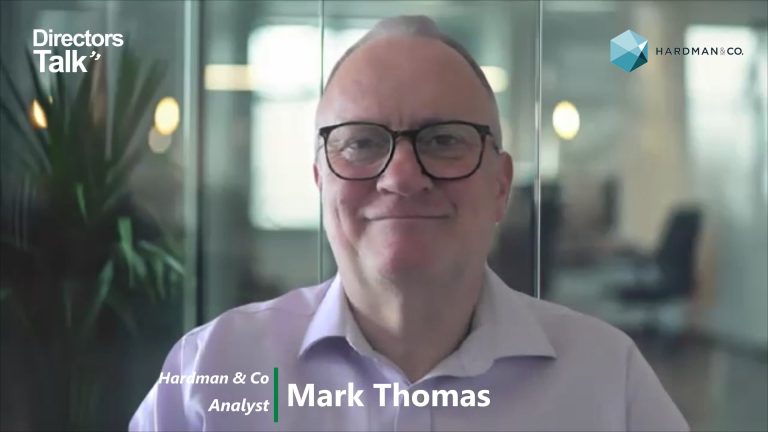RM Secured Direct Lending Plc (LON:RMDL) is the topic of conversation when Hardman and Co’s Mark Thomas caught up with DirectorsTalk for an exclusive interview.
Q1: You called your recent report “Defensive qualities in uncertain times”, can you tell us about your conclusions?
A1: This note examines the company’s potential performance in uncertain times.
RMDL is a debt fund, and the key issues for continuing its track record of capital preservation and dividend streams are what it has done to reduce both the probability of default (POD) and the loss in the event of default (LED).
We conclude that i) the initial credit assessment follows best practice, ii) accounts are closely managed on an ongoing basis, allowing early intervention, reducing both POD and LED, iii) security is structurally robust, and iv) RM has the right approach to recoveries. We believe the top four accounts would all have to default to eliminate the annual dividend.
Q2: You talk of limiting the probability of a borrower default (POD), what has the company done about that?
A2: Perhaps most important is the culture where there is clear ownership of, and responsibility for, the loans by the investment manager whose financial interests are closely aligned to those of shareholders.
Their effective credit assessment processes include detailed cash-driven, scenario modelling. Its close ongoing relationships allow early action on a co-operative basis with the borrower. Sponsor-backed companies, a key borrower group, operationally outperform quoted companies in a downturn.
Finally, the book is diversified by counterparty, geography and economic sector.
Q3: What has it done to limit losses in the event of a default (or LED)?
A3: In a scenario of worsening economic conditions, there will be much more focus on impairments and how problem accounts are managed, and recoveries made.
An important factor is not only that RMDL has taken security, but that the quality of security is high. Its loans are backed by tangible assets whose value in a downturn is much more reliable than other types of security. If RMDL has to enforce its security, it is thus much more likely to get most of its money back. Their ongoing close relationship with borrowers is also crucial to being able to intervene early and so reduce losses.
Overall, we believe RMDL has the right approach to limiting LED through its culture, experience, documentation, legal structures, control of the enforcement process and risk-adjusted pricing.
Q4: Your note also has a section entitled Risk:Reward, what was that about?
A4: Credit is cyclical and that cannot be ignored. What we looked at in this section is how one as an investor, is paid for taking this risk.
RM Secured Direct Lending is currently yielding ca.5x as much as gilt funds, 2.6x corporate bond funds, 2x strategic or global funds and 1.4x the average high yield fund. In terms of cashflow, assuming the average loan size and yield, it would need 19 out of their 36 loans to stop payments before the loss of income would reduce RMDL’s yield to the level of the gilt funds. Looking through the accounting point, this level of loss on the largest exposure would reduce the yield to ca.5%.
It would take all the top four exposures to default before the annual dividend would be eliminated.









































